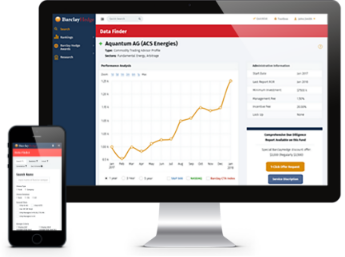Artificial intelligence and machine learning are here to stay in the hedge fund industry, but the humans are still making the most critical decisions.
That’s the key takeaway from the latest Barclay Hedge Fund Manager/Investor Survey, a quarterly report on the sentiments of professionals in the alternative investments sector. Our most recent survey finds that:
- More than half of respondents say they use AI/Machine Learning to inform investment decisions.
- Two-thirds of the respondents use AI/ML to generate trading ideas and optimize portfolios. Just over a quarter use automation to execute trades.
- Well over half of the respondents have used AI for three or more years, and a third of them have used the technology for five-plus years.
Now, let’s dive into the details of the survey.
Q1: Do you utilize a machine learning (artificial intelligence) approach in your investment processes?

Concerns about machines taking over the alternative investments landscape may be premature. Amid the breathless hype about automation, fin-tech, and big data, more than four out of ten of our survey’s respondents still rely on conventional human thinking to guide their investment processes.
Nevertheless, the 56.4% of respondents using AI/ML suggest we’ve passed the half-way point in the race to digitize alternative investment processes.
A breakdown of our respondents’ employers shows that just over half work for CTAs, and six out of ten of them use AI/ML. That’s hardly a surprise, given that automated CTAs are the predominant managed-futures model (the Barclay Fund Flow Indicator, for instance, estimates that systematic CTAs hold eight times more assets than their discretionary counterparts).
Q2: Which part of your investment process is driven by an application of machine learning techniques? (Check all that apply.)
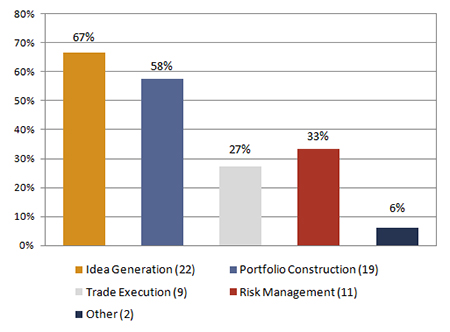
AI and machine learning let traders and portfolio managers scan immense data sets and act on data that informs a desired outcome. The algorithms optimize positive outcomes and downgrade adverse results automatically, essentially teaching themselves what works and what doesn’t.
The hedge fund pros we surveyed are not turning everything over to the algorithms. Instead, they’re using them to formulate investment ideas and build portfolios informed by data analysis that the human brain could never hope to accomplish. Just over a quarter use AI/ML to execute trades, suggesting a general reluctance to let the machines pull the trigger.
Q3: Approximately what percent of your decision-making process as a fund manager relies on machine learning/artificial intelligence?
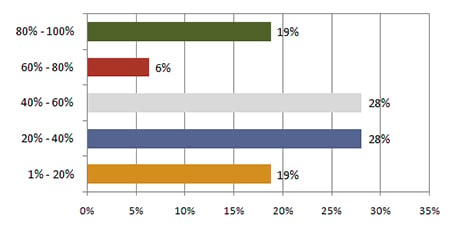
Our survey respondents are giving the machines their due. More than one-half say AI/ML guides 20-60% of their decision-making, and just under one-fifth say it accounts for 80-100%. The 43% average reinforces the proposition that the people are still running things, but they rely deeply on advanced automation and data-analysis tools.
Q4: How long ago did you first start implementing AI/ML into your trading methodology?
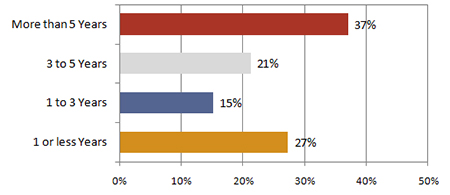
Hedge fund pros have always enjoyed access to the most advanced analytical tools. Indeed, more than half of our respondents have been using AI three years or more, and a plurality have used them for more than five years.
These results pose an intriguing question: Have the hedge fund quants who have used AI/ML for years become set in their ways—and thus vulnerable to disruptive fin-tech newcomers?
Q5: What are your approximate total strategy assets that utilize machine learning/artificial intelligence (funds and managed accounts)?
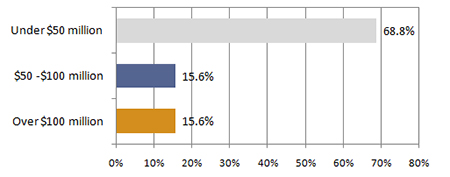
More than two-thirds of our survey respondents use AI/ML on assets of less than $50 million, suggesting a disinclination to make big bets on the bots. Another possibility is that smaller funds are better able to execute their trades without giving away their techniques and strategies to competing funds.
More reading on AI and machine learning in the hedge fund industry:
- Wired: The Rise of the Artificially Intelligent Hedge Fund
- The Economist: Hedge funds embrace machine learning—up to a point
- Forbes: Quantimental Investing: The New Way To Beat The Market
- Bloomberg: It’s Been a Rough 2018 for Many Quant Hedge Funds
Survey Methodology
The BarclayHedge Hedge Fund Manager/Investor Survey went out to 2,135 hedge fund professionals between May 9 and May 21, 2018. We received 55 responses from people working in hedge funds and commodity trading adviser (CTA) funds.


